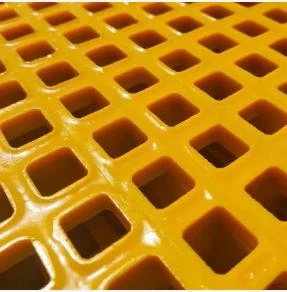loading...
- No. 9, Xingyuan South Street, Dongwaihuan Road, Zaoqiang County, Hengshui, Hebei, China
- admin@zjcomposites.com
- +86 15097380338
- Welcome to visit our website!
Home Water Purification Solutions for Improved Quality and Safety
Home Water Treatment Systems Ensuring Safe and Clean Drinking Water
As water quality issues become increasingly prevalent, many homeowners are considering home water treatment systems to ensure their families have access to clean and safe drinking water. With a variety of pollutants, sediments, and contaminants infiltrating our water supplies, understanding water treatment options is essential. This article will explore the various types of home water treatment systems, their benefits, and factors to consider when choosing the right system for your household.
Understanding Water Contaminants
Before delving into the treatment systems available, it’s vital to understand the common contaminants found in household water supplies. These may include
1. Microbial Contaminants Bacteria, viruses, and other microorganisms can pose serious health risks. Common sources include sewage discharge and runoff from agricultural areas. 2. Chemical Contaminants Pesticides, heavy metals (like lead and mercury), and industrial chemicals may be present due to agricultural activities or industrial processes.
3. Sediments and Particulates These include dirt, rust, and other particulate matter that can affect the aesthetics and purity of water.
4. Chlorine and Chloramine These disinfectants, commonly used in municipal water supplies, can contribute to unpleasant tastes and odors.
5. Hardness Minerals Calcium and magnesium can cause scaling in pipes and appliances, affecting their efficiency and longevity.
Types of Home Water Treatment Systems
There are several options for home water treatment, each suited to different needs and situations
1. Activated Carbon Filters These are popular for their ability to improve taste and odor by removing chlorine and sediment. They are effective for treating volatile organic compounds (VOCs) and some pesticides but may not remove all contaminants, such as heavy metals or microbes.
2. Reverse Osmosis Systems These systems use a semi-permeable membrane to remove a wide range of contaminants, including dissolved solids, heavy metals, and certain microorganisms. RO systems are effective but can also waste water during filtration and typically require regular maintenance.
3. UV Purification Systems Ultraviolet light systems are excellent for eliminating bacteria and viruses without the use of chemicals. However, they do not remove chemical contaminants and require electricity to operate.
4. Water Softeners These systems are specifically designed to combat hard water issues by exchanging calcium and magnesium ions with sodium or potassium ions. Softened water can help prevent scale buildup and extend the lifespan of plumbing fixtures.
5. Whole House Filtration Systems These systems are installed at the point of entry into the home and treat all water entering the household. They may combine several filtration and purification methods to address a variety of contaminants.
water treatment systems for home

Benefits of Home Water Treatment Systems
Investing in a home water treatment system offers numerous advantages, including
- Improved Water Quality Home treatment systems can significantly enhance the taste, odor, and overall quality of drinking water.
- Health Protection By removing potential contaminants, these systems can help protect your family from waterborne diseases and harmful substances.
- Cost-Effective Solution Although the initial investment may be substantial, a water treatment system can save money in the long run by reducing reliance on bottled water and minimizing plumbing repairs due to scale buildup.
- Environmental Impact Using a home treatment system can reduce plastic waste from bottled water consumption, contributing to a more sustainable environment.
Considerations When Choosing a Water Treatment System
When selecting a home water treatment system, homeowners should consider several factors
1. Water Quality Testing Before choosing a system, it’s crucial to have your water tested to identify specific contaminants and determine which treatment is required.
2. Certification Look for systems that are certified by organizations such as NSF International or the Water Quality Association, ensuring they meet industry standards for contaminant reduction.
3. Maintenance Requirements Understand the maintenance needed for the system, including filter replacement schedules and cleaning procedures, to keep it functioning optimally.
4. Budget Assess your budget not only for the initial purchase but also for maintenance costs over time.
5. Flow Rate and Capacity Ensure the system can handle your household's water consumption without sacrificing water pressure.
In conclusion, home water treatment systems are essential for addressing the diverse range of contaminants found in household water supplies. By understanding the types of systems available and their benefits, homeowners can make informed decisions that ensure their families have access to safe, clean drinking water.
-
GRP Structures: The Future of Lightweight, High-Performance EngineeringNewsJun.20,2025
-
FRP Water Tank: High-Performance Storage for Corrosive and Clean Water SystemsNewsJun.20,2025
-
FRP Square Tube: The New Industry Standard for Chemical and Structural ApplicationsNewsJun.20,2025
-
FRP Pultruded Profiles: The Ultimate Choice for Lightweight Structural StrengthNewsJun.20,2025
-
FRP Handrails: The Safer, Smarter, and Stronger Choice for Modern InfrastructureNewsJun.20,2025
-
FRP Grating: The Smart Solution for Durable, Lightweight Industrial FlooringNewsJun.20,2025
-
Why Choose a Galvanized Water Tank for Your Storage NeedsNewsMay.21,2025
